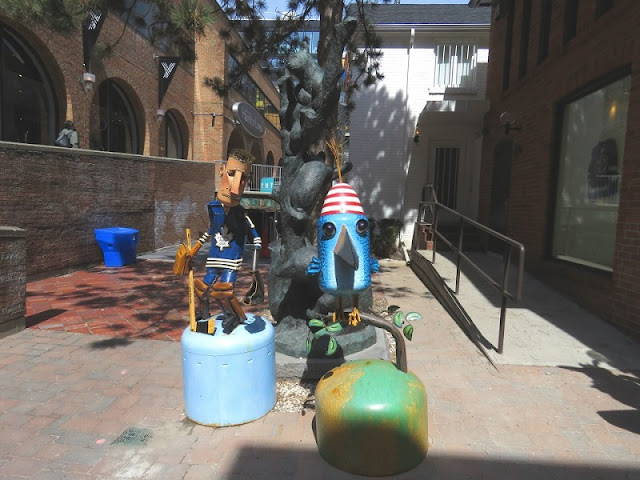The Hell-Bound Train
By Robert Bloch
Almost six months went by before Martin met Lillian Gillis. By that time he'd had another promotion and was working inside, in the office. They made him go to night school to learn how to do simple book-keeping, but it meant another fifteen bucks extra a week, and it was nicer working indoors.
And Lillian was a lot of fun. When she told him she'd marry him, Martin was almost sure that the time was now. Except that she was sort of – well, she was a nice girl, and she said the'd have to wait until they were married. Of course, Martin couldn't expect to marry her until he had a little more money saved up, and another raise wold help, too.
That took a year. Martin was patient, because he knew it was going to be worth it. Every time he had any doubts, he took out his watch and looked at it. But he never showed it to Lillian, or anybody else. Most of the other men wore expensive wristwatches and the old silver railroad watch looked just a little cheap.
Martin smiled as he gazed at the stem. Just a few twists and he'd have something none of these other poor working slobs would over have. Permanent satisfaction, with his blushing bride...
Only getting married turned out to be just just the beginning. Sure, it was wonderful, but Lillian told him much better things would be if they could move into a new place and fix it up. Martin wanted decent furniture, a TV set, a nice car.
 |
| The Hell-Bound Train. Photo by Elena. |
So he started taking night courses and got a promotion to the front office. With the baby coming, he wanted to stick around and see his son arrive. And when it came, he realized he'd have to wait until it got a little older, started to walk and talk and develop a personality of its own.
About this time the company sent him out on the road as a trouble-shooter on some of those other jobs, and now he was eating at those good hotels, living high on the hog and the expense-account. More than once he was tempted to unwind his watch. This was the good life... Of course, it would be even better if he just didn't have to work. Sooner or later, if he could cut in on one of the company deals, he could make a pile and retire. The everything would be ideal.
It happened, but it took time. Marin's son was going to high school before he really got up there into the chips. Martin got a strong hunch that it was now or never, because he wasn't exactly a kid any more.
But right about then he met Sherry Westcott, and she didn't seem to think he was middle-aged at all, in spite of the way he was losing hair and adding stomach. She taught him that a toupee could cover the bald spot and a cummerbund could cover the potgut. In fact, she taught him quite a lot and he so enjoyed learning that he actually took out his watch and prepared to unwind it.



